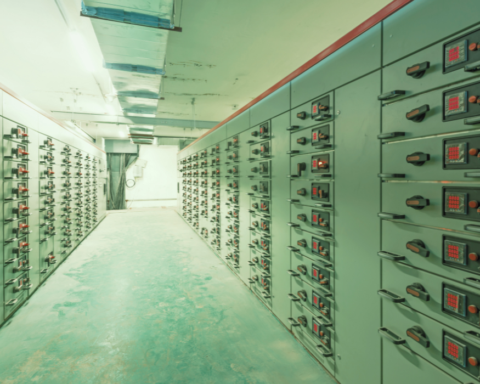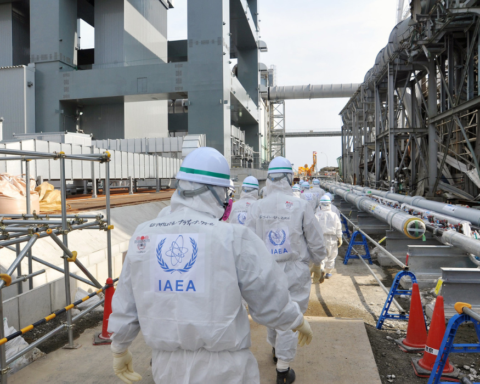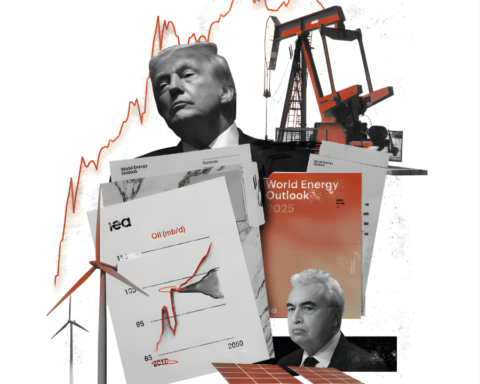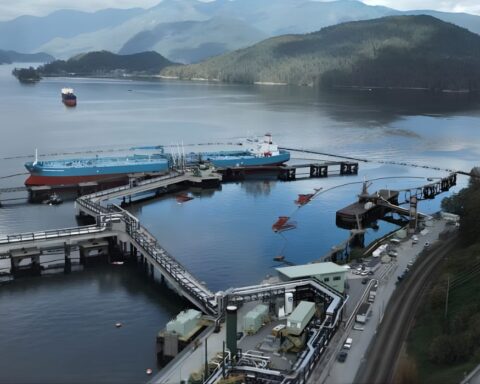The European Union’s need for natural gas will peak in about three years and begin declining before any new, fixed liquefied natural gas (LNG) terminals can be brought online, and EU countries are deliberately trying to avoid the kind of long-term supply contracts that Canadian gas producers are looking for, a UK-based fossil fuel specialist says.
The continent can fully free itself from Russian gas by 2025 with no new gas import infrastructure, and is already showing signs of much slower demand growth up to that date, Sarah Brown, senior energy and climate analyst at the Ember climate consultancy, said in an email.
Brown was responding to questions after completing an analysis showing that reports of a new coal boom in Europe’s electric power sector are also greatly exaggerated. She found that Germany, Austria, France, and the Netherlands have brought 14 gigawatts of coal-fired power plants out of retirement and put them on standby, in order to get more gas into storage in case Russia cuts off supplies this winter. But even in the worst case—if all the plants had to run through 2023—they would only produce enough electricity to power Europe for about a week and increase the continent’s emissions in that year by 30 million tonnes, about 1.5% of the EU’s 2031 total.
Meanwhile, those same countries have found new urgency for a permanent shift off any form of fossil energy from any supplier.
“There has been a paradigm shift in Europe against dependence on fossil fuels,” Brown told The Energy Mix. “There are no longer arguments coming out of European governments that fossil fuels bring energy security. Instead, it has been recognized that decarbonization has so far moved too slowly, and there is heightened urgency to accelerate renewables deployment.”
The result is an increase in renewable energy “targets and ambitions”, at the level of both the EU and member states, Brown said. “This shift is permanent, and changes are already being implemented to achieve the required massive rise in wind and solar installations—such as reductions in permitting times and amendments to legislation.”
Gas and coal prices in Europe are expected to remain high for the next three years, she added, “so by the time they might drop, fossil fuel demand will have been reduced by increased availability of renewable energy.”
There has been a paradigm shift in Europe against dependence on fossil fuels.
-Sarah Brown, senior energy and climate analyst at the Ember climate consultancy
Brown said European countries have set up a voluntary system, the Energy Purchase Platform, to coordinate the short-term gas purchases they need to secure supplies for this winter. She added that Germany, the customer Canada has in mind for two possible LNG terminals on the East Coast, had “argued against Qatar’s conditions of a 20-year-long partnership” to buy and sell gas.
So far, Canadian cabinet ministers have insisted that any new gas supply deal with Germany would have to include a longer-term shift to green hydrogen derived from renewable electricity. Newfoundland and Labrador, a province long dependent on offshore oil and gas development, recently lifted a moratorium on wind farm construction.
But a news report a couple of months ago suggested the technical realities of converting from LNG to hydrogen might be more complicated than the politics.
“Almost none of the equipment used to [process LNG] is suitable to handle hydrogen, which is more difficult to store and transport because its molecules are much smaller than the methane that makes up a large chunk of natural gas,” wrote Bloomberg Green. “It’s true that hydrogen can also be moved as a liquid in ships, but the gas has to be cooled to an even lower -250°C [below the -160°C threshold for LNG], requiring completely different vessels. Storage tanks, the most costly component of any LNG terminal, are no good at holding tiny hydrogen molecules. Not all pipelines can handle pure hydrogen; it can weaken the metal structures and cause leaks.”
“The conversion of an LNG terminal to liquid hydrogen is a technical challenge,” Arno Buex, chief commercial officer at Belgian LNG terminal operator Flyxus, told Bloomberg. “An economically viable business model…is far from imminent.”
Brown cautioned that “this current discussion about ‘hydrogen readiness’ for gas infrastructure is speculative and untested. And there are limits to the realistic usages for hydrogen—it will only be able to replace gas for certain industries and processes. There are also concerns about the negative local impact on the countries that may end up producing this hydrogen for the EU.”
This article is republished from The Energy Mix. Read the original article.







